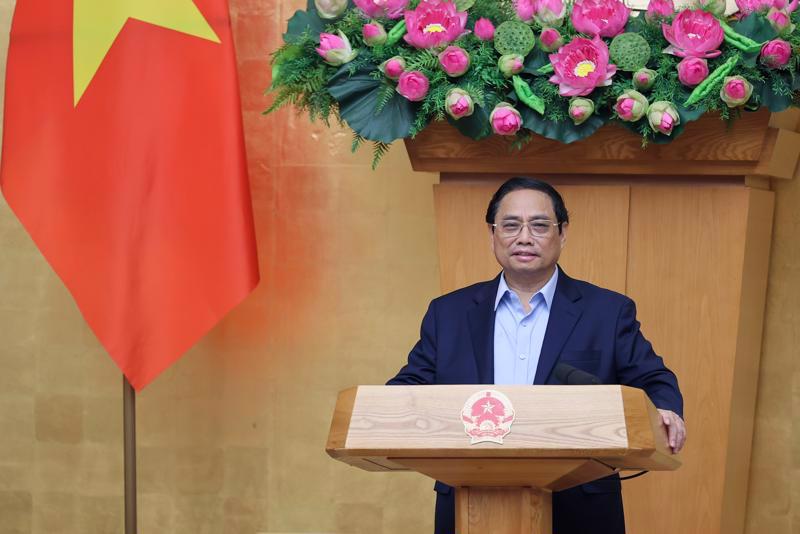Prime Minister Pham Minh Chinh signed decisions on July 11 to establish four Regional Coordinating Councils (RCC) for the Red River Delta Region, the North Central and Central Coast Region, the Southeast Region, and the Central Highlands Region.
The councils are being set up to help the Prime Minister deal with major issues relating to regional connectivity and sustainable development.
The move is aimed to innovating regional coordination mechanisms, boosting rapid and sustainable socio-economic development, protecting the environment, and ensuring national defense and security.
Prime Minister Chinh will chair the RCC for the Southeast Region, which consists of Ho Chi Minh City and the five provinces of Tay Ninh, Binh Phuoc, Binh Duong, Dong Nai, and Ba Ria-Vung Tau.
He will also lead the RCC for the Red River Delta Region, consisting of Hanoi, Hai Phong, and the nine provinces of Quang Ninh, Vinh Phuc, Bac Ninh, Hai Duong, Hung Yen, Thai Binh, Nam Dinh, Ha Nam, and Ninh Binh.
Deputy Prime Minister Tran Hong Ha will chair the RCC for the North Central and Central Coast Region, which consist of Da Nang and the 13 provinces of Thanh Hoa, Nghe An, Ha Tinh, Quang Binh, Quang Tri, Thua Thien-Hue, Quang Nam, Quang Ngai, Binh Dinh, Phu Yen, Khanh Hoa, Ninh Thuan, and Binh Thuan.
Deputy Prime Minister Tran Luu Quang will lead the RCC for the Central Highlands Region, comprising the five provinces of Dak Lak, Dak Nong, Kon Tum, Gia Lai, and Lam Dong.
The RCCs will study and propose orientations, solutions, mechanisms, and policies to the Prime Minister to realize targets and missions enshrined in the Politburo’s resolutions on socio-economic development and national security and defense in these regions.
They also are responsible for coordinating the development, adjustment, and implementation of national master planning, regional master planning, and provincial-level master planning for the 2021-2030 period and vision to 2050.
The Councils are also tasked with proposing mechanisms and policies for the development of these regions and accelerating regional connectivity.
They will organize trade promotion activities, mobilize resources, attract investment, and coordinate the use of public investment capital to orient and guide non-State investment resources such as FDI, business capital, and private capital, as well as promote investment in the form of public-private partnerships (PPPs) in strategic infrastructure development.









 Google translate
Google translate